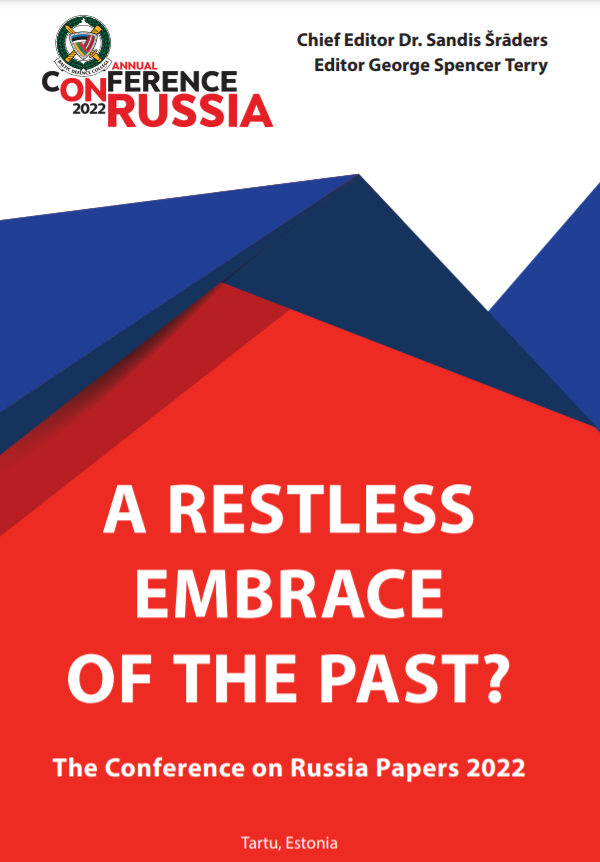Dr. Sandis Šrāders, Fellow, Russian Strategic and Military Studies, Baltic Defence College
George Spencer Terry, Lecturer in Eastern European and Russian Studies, Baltic Defence College
The Baltic Defence College’s Conference on Russia 2021 centered on the topic of responding to Russian in a multi-threat world, and the accompanying proceedings focused on this topic as well. This current volume, released alongside the 2022 Conference on Russia, takes up the mantle of the previous version, focusing on a single global challenge – the COVID-19 pandemic – looking at how it has reshaped the relationship between Russia and the West. To this point, we will engage with a diverse array of Russia scholars, experts, specialists, and policy practitioners who will present their diagnoses of the role of Russia in a world wherein the COVID-19 pandemic and its consequences has become a structural backdrop to both international relations and domestic dynamics. It is our goal to provide a forum for all opinions on these issues, engaging with Western and Russian viewpoints, as well as those that do not neatly fit into either end of this spectrum. Nevertheless, the views expressed by the authors of these chapters are solely their own and do not represent the position of the Baltic Defense College.
The COVID-19 pandemic, as a concrete global problem that transcends borders and worldviews, can easily act as a point of cooperation for Russia and the West. However, has such cooperation materialized? What has changed between Russia and the West? What has stayed the same? Do prepandemic trends still hold for this post-COVID world, or have we truly arrived in a new world? With a growing number of challenges such climate change and migration that cut across borders, there will be more and more of a necessity for a common understanding in order to tackle such issues. While COVID-19 is far from the only shared global threat, this editorial focuses on the link between the epidemic and the wider set of difficult relationships that exist between the West and Russia.
Thus, we must ask if it is possible to discard previous tendencies from our thinking, or should we focus on novel ones? No particular answers are promised in the current edition. However, it would be a failure of responsibility if we did not at least attempt to open the floor for this conversation. In the past, such trends and problems have previously placed significant limits on Russian society’s transformations as well as Russia’s interactions with the West. While many contemporary Russian thinkers and authors portray Moscow as the last stronghold and defender of traditional values in the face of a revisionist and hypocritical West, the regime has exerted significant pressures and restrictions on its own domestic opposition. As a result of this stance, the Kremlin appears to be locked in a solely confrontational struggle with the West, which has yet to see a way out.
In 2017, Dmitri Trenin of the Moscow Carnegie Center questioned if the West should fear Russia. From one side, Trenin advocated against possible military interventions in near abroad or elsewhere. At the time of this volume’s publication, the Russian military is amassing large mechanized units around Ukraine’s borders. On the other hand, he argued that the West should fear the Russia’s collapse even more. More Western sanctions are in place to prevent Russia from further military adventurism in the face of present pressures. These sanctions could possibly deepen the socioeconomic hardships for the local populace, necessitating the strengthening of already autocratic control. At the moment, these domestic and international goals are inextricably linked, as Putin’s regime’s survival depends on even little victories abroad to legitimize itself. The outbreak of the COVID-19 virus has brought both problems to the foreground for Russia, those on the frontlines with Russia, and the rest of the globe. In this volume, we aim to learn more about these challenges and how they will affect our common future.
Read and download the book here.

